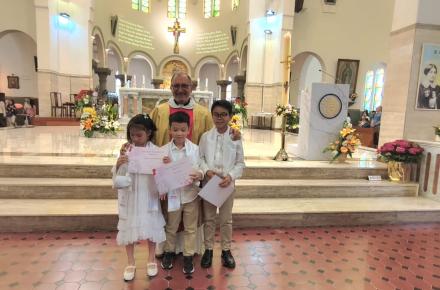Kong Kong, no candlelight vigil for those killed in Tiananmen Square
It's the fourth time. This year there are no organizers, as they were arrested on charges of violating the national security law. On the night of June 3-4, the Chinese People's Liberation Army intervened with tanks and rifles to clear the square. According to various organizations there have been at least hundreds, if not thousands of victims. There is a rush to clear Tiananmen memory and signs. Xu Zhiyong's proposal: to fast on June 4th.
Hong Kong (BC.it) - For the fourth consecutive year, the Vigil for those who were killed in Tiananmen Square will not take place in Hong Kong on the evening of 4 June. Since 1990 it had become an appointment attended by tens of thousands of people (up to 150 thousand) from Hong Kong, Taiwan, China, foreign countries (photo n.1). Hong Kong was one of the few Chinese territories commemorating the tragic event that put an end to demonstrations and sit-ins of students and workers from all over China gathered in Beijing's Tiananmen Square in May-June 1989, demanding less corruption and more democracy in the Chinese Communist Party (photo 2). After months of unsuccessful requests to meet with the authorities, on the night between June 3 and 4, the Chinese People's Liberation Army intervened with tanks and rifles to clear the square. According to various organizations there have been at least hundreds, if not thousands of victims. China has never given a detailed list of the dead.
The Tiananmen Vigil in Hong Kong has always been non-violent, almost a prayer vigil, with lit candles, songs, elegies, testimonies. In 2019, then Chief Executive Carrie Lam said the vigil was a “demonstration that Hong Kong is a very free place. We respect citizens' freedom of speech, expression and association."
From 2020 to 2022 the Vigil was prohibited due to the Covid epidemic. Furthermore, after the pro-democracy demonstrations of 2019-2020, which sometimes resulted in violence and clashes with the police, from 1 July 2020, Beijing imposed a national security law that punishes subversion, secession, collusion with foreign forces and acts of terrorism. Since then there have been arrests, charges, closures of newspapers, threats. The Alliance for Democracy, which organized the vigil, dissolved itself after its main members were arrested and accused of wanting to overthrow the Communist Party of China. Indeed, the Alliance has always preached about bringing democracy to China, but has never pushed for any violent action. This year, therefore, the organizers of the Vigil are missing, but also the place where it took place - Victoria Park, is officially partially unusable due to "maintenance"; some areas of the camp are occupied by a Chinese food festival, booked - according to various media - by pro-Beijing groups. The current chief executive, John Lee, was asked by a journalist if commemorating the dead of Tiananmen was also prohibited in public. Lee did not give a precise answer, he only said that "everyone should act according to the law".
In China, the events of 1989 are classified as the work of "counter-revolutionaries" who wanted to overthrow the regime. But the relatives of the killed continue to ask that the Party review this judgment, given that in their opinion their children, husbands and wives were in reality "patriots". Meanwhile, all references to the Tiananmen massacre, June 4th, etc. are censored on the internet. In public, more bureaucratic language is preferred, defining the events as "the Tiananmen incident". Even in Hong Kong they prefer to speak of an "incident" and even those accused in court have been forbidden to use the word "massacre". From the security law onwards, also in Hong Kong there is a rush to erase the signs of Tiananmen: a museum has been closed; statues commemorating the massacre have been removed; police control has become more massive; even those who sell votive candles are suspected. Many young people eager for democracy have fled abroad. In this way, this year, the demonstrations in memory of those killed in Tiananmen will be held in Taiwan, but also in London, New York, Paris, Melbourne, ..., organized by Hong Kong communities abroad.
It made a great impression that Xu Zhiyong (photo 3), a law professor, in prison for his fight against the corruption of the leadership and for supporting democracy, spread a message abroad proposing to everyone a simple way to remember Tiananmen: by fasting on June 4th. He will do it from prison and has been doing it for 10 years.

